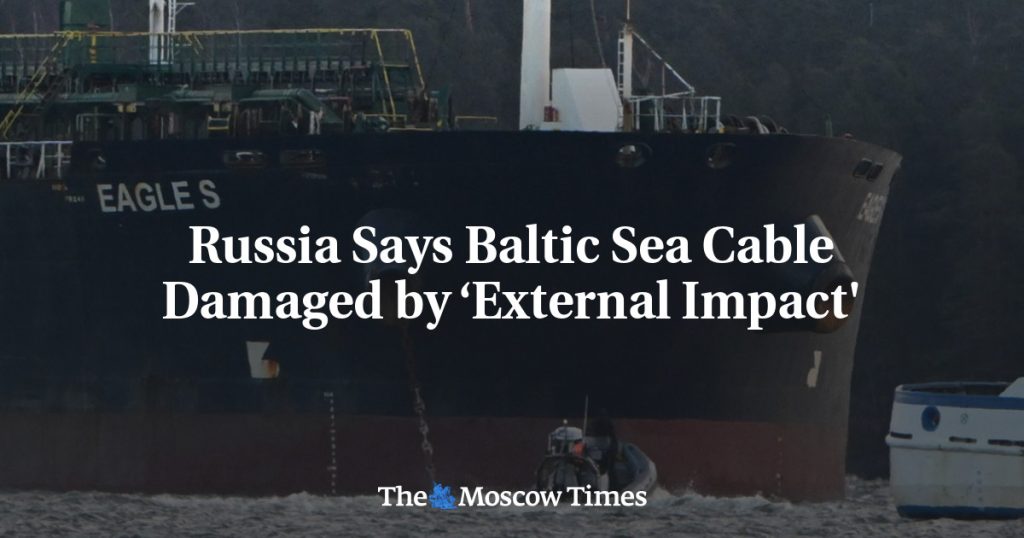Rostelecom’s Damaged Underwater Cable in the Baltic Sea
Russia’s state-controlled telecommunications giant, Rostelecom, revealed on Saturday that one of its underwater cables in the Baltic Sea had been damaged due to an "external impact." The incident has sparked concerns and suspicions, as it follows a series of similar events involving the severing of undersea telecom and power cables in the region. Experts and politicians have pointed fingers at Russia, accusing it of waging a hybrid war against Western countries that are supporting Ukraine. Rostelecom confirmed that repair work is underway but emphasized that the damage has not affected consumers. This latest incident adds to the growing tensions in the Baltic Sea, where critical infrastructure has increasingly become a target of sabotage and geopolitical maneuvering.
Suspicions of Russian Involvement in Underwater Cable Damage
The spate of damaged underwater cables in the Baltic Sea has raised eyebrows across the region. Several incidents, including the damage to Rostelecom’s cable, have occurred in recent months, with many attributing the actions to Russia. These suspicions are fueled by the ongoing conflict in Ukraine, where Russia has been accused of employing unconventional tactics to destabilize its opponents and their allies. The timing of these incidents, coinciding with heightened tensions between Russia and Western nations, has further solidified these suspicions. While Russia has not claimed responsibility for the damage, the pattern of events has led NATO countries and regional governments to step up security measures to protect critical underwater infrastructure.
Finland’s Response to the Damaged Cable Repair
Earlier on Saturday, the Finnish coastguard reported that it was monitoring the repair of a Russian underwater cable in the Gulf of Finland. According to local authorities, the repair operations were being carried out by a Russian vessel within Finland’s exclusive economic zone. This development has drawn attention to the sensitive nature of such activities in a region already on high alert for potential sabotage or hybrid threats. The Finnish authorities have been closely watching the situation, ensuring that the repairs do not compromise national security or regional stability. This incident underscores the delicate balance of power in the Baltic Sea, where even routine operations can take on geopolitical significance.
NATO’s "Baltic Sentry" Mission to Protect Underwater Infrastructure
In response to the growing threats to critical underwater infrastructure in the Baltic Sea, NATO has launched a patrol mission aimed at safeguarding these vital assets. Dubbed "Baltic Sentry," the operation involves the deployment of aircraft, frigates, submarines, and drones to monitor and protect the region’s undersea cables and pipelines. The mission was initiated in January, following a series of damaging incidents that disrupted telecommunications and energy supplies. By enhancing surveillance and deterrence, NATO aims to prevent further attacks and ensure the integrity of infrastructure that is essential for the economic and security interests of the region. This proactive approach reflects the alliance’s commitment to addressing emerging threats and maintaining stability in the Baltic Sea.
The Broader Context of Hybrid Warfare in the Baltic Region
The damage to Rostelecom’s underwater cable is part of a larger pattern of events that have drawn attention to the vulnerabilities of critical infrastructure in the Baltic Sea. In November 2023, Finnish authorities reported that a Rostelecom cable in the Baltic Sea had been damaged in October, around the same time that similar incidents occurred in Sweden and Finland. These events have been interpreted by many as part of a broader campaign of hybrid warfare, where non-traditional tactics such as sabotage and disinformation are used to destabilize adversaries. The Baltic Sea has become a focal point for such activities, given its strategic importance as a transit route for energy and telecommunications. As a result, regional governments and NATO have been forced to adapt their security strategies to address these emerging threats.
The Role of Independent Journalism in a Time of Censorship
Amid the escalating tensions and accusations of hybrid warfare, independent journalism has become a critical force in shedding light on the truth. The Moscow Times, a prominent news outlet, has faced increasing pressure from Russian authorities, including being labeled as an "undesirable" organization and a "foreign agent." These designations are part of a broader effort to silence independent voices and control the narrative, especially as the conflict in Ukraine continues to unfold. The Moscow Times has refused to be silenced, emphasizing its commitment to providing accurate and unbiased reporting on Russia. By supporting such outlets, readers can play a crucial role in defending press freedom and ensuring that independent journalism continues to thrive, even in the face of repression.












